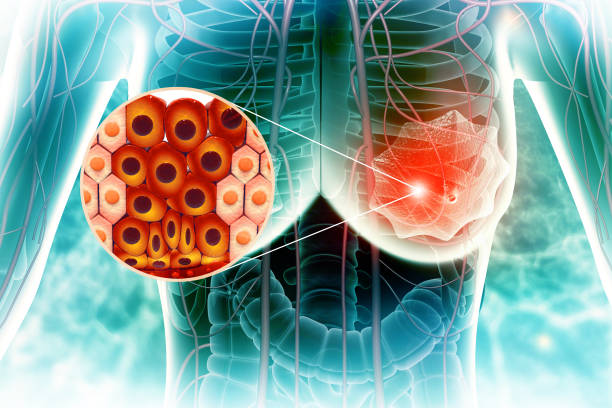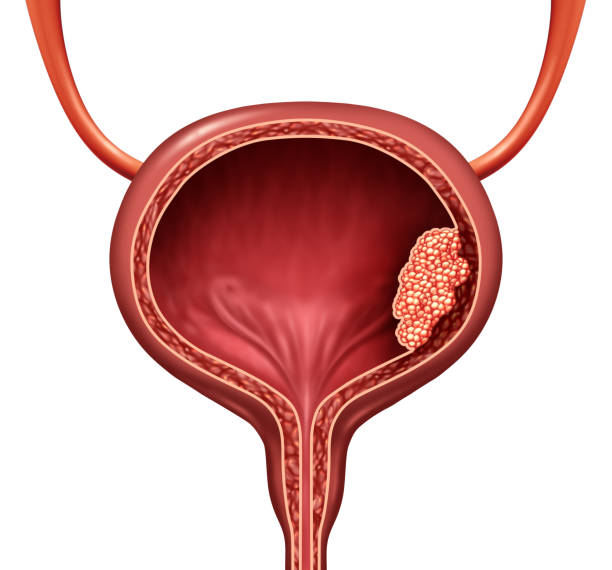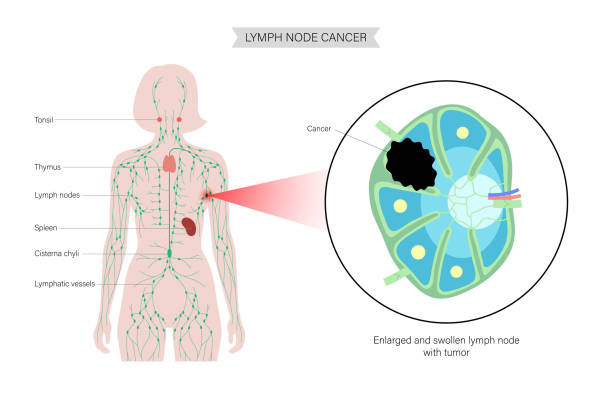
Immunotherapy Treatment in Bangalore
Cancer remains one of the most prevalent health challenges globally. Every year, nearly 19.3 million new cases are diagnosed globally, with over 1.4 million occurring in India. Advances in medical science, particularly early screening and innovative treatments, have significantly improved detection and management rates.
Among these breakthroughs, immunotherapy has emerged as a transformative approach, utilizing the body’s immune system to combat cancer cells effectively. Dr. Manish Kumar, a highly regarded medical oncologist in Bangalore, states,

“Immunotherapy represents a new era in cancer treatment. By enhancing the body’s natural defences, it not only targets the disease but also provides patients with a renewed sense of hope and strength.”
With over 24 years of expertise, Dr. Kumar is recognized for his specialization in advanced immunotherapy treatment in Bangalore. His innovative and compassionate approach has established him as a trusted professional in guiding patients through their cancer journeys.
Now, let’s explore how immunotherapy works and its impact on cancer care.
Overview of Immunotherapy
Immunotherapy is a form of cancer treatment that utilizes the body’s immune system to fight cancer cells. Unlike traditional therapies that directly attack tumors as well as healthy cells, immunotherapy enables the immune system to identify and destroy only malignant cells. This approach can lead to more durable responses and fewer side effects.
Advancements in immunotherapy have led to the development of various strategies, including:
Checkpoint Inhibitors:These drugs block proteins that prevent the immune system from attacking cancer cells, thereby enhancing the body’s immune response.
CAR-T Cell Therapy:This involves modifying a patient’s T cells to attack cancer cells more effectively.
Cancer Vaccines:Vaccines that stimulate the immune system to target specific cancer antigens.
These innovations have significantly improved outcomes for many cancer patients, particularly those who haven’t responded to conventional treatments.

Want to understand how immunotherapy fits your cancer care plan? Speak with a professional today to explore your options.
Types of Cancer That Immunotherapy Can Treat
Immunotherapy has shown remarkable effectiveness in treating various cancer types. Here are some that can be managed with this innovative approach:
Lungs Cancer

Immunotherapy is particularly effective for non-small cell lung cancer. It targets PD-L1 proteins to enhance the immune system’s ability to fight cancer cells.
Melanoma

One of the first cancers treated with immunotherapy, it shows excellent results with immune checkpoint inhibitors, improving long-term survival rates.
Kidney Cancer

Often treated using immune checkpoint inhibitors and cytokine therapies, immunotherapy has proven to improve outcomes, especially in advanced cases.
Breast Cancer

Particularly for triple-negative breast cancer, immunotherapy combined with chemotherapy has shown promising responses in controlling tumor growth.
Colon Cancer

Effective for patients with microsatellite instability-high (MSI-high) tumors, immunotherapy has demonstrated significant potential in reducing tumor progression.
Leukaemia

CAR-T cell therapy, a form of immunotherapy, has revolutionized thetreatment of certain types of leukemia, providing targeted and personalized care.
Bladder Cancer

Immune checkpoint inhibitors help the body recognize and attack bladder cancer cells, making immunotherapy a viable option for advanced cases.
Lymphoma

CAR-T cell therapy and immune-modulating drugs are highly effective in treating certain types of lymphoma, improving remission rates.
Immunotherapy continues to expand its scope, offering hope to patients with cancers previously considered challenging to treat.
Treatment Process
Receiving immunotherapy treatment in Bangalore under the expert guidance of Dr. Manish Kumar involves several carefully managed steps:
1. Consultation and Diagnosis: Dr. Kumar conducts thorough evaluations, including genetic testing, to ensure the patient is fit for treatment and determine the best immunotherapy options.
2. Treatment Plan: Based on the cancer type, stage, and patient health, customized therapies such as monoclonal antibodies or immune checkpoint inhibitors are planned.
3. Therapy Sessions: Depending on the type of immunotherapy, it can be administered intravenously, orally, or through injections. Treatments usually last a few hours and are given over several weeks apart.

5. Monitoring: Our medical team monitors patients for immediate reactions during and after therapy.
6. Progress Evaluation: Regular follow-ups are scheduled to assess the effectiveness of the treatment and adjust protocols if necessary.
What happens after immunotherapy? Learn the importance of post-treatment care below.
Post Immunotherapy Care
Post-treatment care is essential for maximizing the benefits of immunotherapy:
Healthy Lifestyle: Patients should maintain a balanced diet and stay active to support recovery.
Regular Check-Ups: Follow-ups are crucial for monitoring progress and detecting any recurrences early.
Side Effect Management: Fatigue, fever, or nausea may occur and are manageable with appropriate care.
Emotional Well-being: Access to counseling and support groups can help patients navigate the emotional challenges of recovery.
What makes immunotherapy a game-changer? Let’s discuss its success rates and benefits.
Success Rate
Immunotherapy has demonstrated impressive success rates, particularly for advanced or hard-to-treat cancers. For instance, checkpoint inhibitors have a 40% to 50% response rate in advanced melanoma, while CAR-T cell therapy has been effective for certain leukemias and lymphomas. Combining immunotherapy with other treatments has also improved survival rates for lung and kidney cancer patients.
Beyond survival rates, immunotherapy offers long-lasting effects and fewer side effects than chemotherapy. Patients are encouraged to seek advice from experienced specialists to see if immunotherapy is the right choice for their condition, ensuring personalized care.

Interested in learning more about the expert behind these treatments? Let’s delve into their background and expertise.
About Dr. Manish Kumar

Dr. Manish Kumar is a highly respected medical oncologist in Bangalore with over 24 years of experience in advanced cancer care. He specializes in precision oncology, immunotherapy, and bone marrow transplantation, offering expertise in various solid and hematological malignancies.
Trained at AIIMS, New Delhi, and certified by the European Society for Medical Oncology (ESMO), Dr. Kumar is dedicated to delivering personalized, evidence-based therapies. As an expert in immunotherapy in Bangalore for cancer, Dr. Kumar has transformed treatment options for many patients, integrating therapies like checkpoint inhibitors and CAR-T cell therapy into tailored care plans.
With a compassionate, patient-centred approach, Dr. Kumar combines medical expertise with genuine support, ensuring patients feel cared for throughout their treatment journey. His commitment to advancing cancer care has established him as a trusted authority in oncology, making him one of the leading immunotherapy doctors in Bangalore.
“Immunotherapy has given us the ability to target cancer in ways we never imagined before. It’s not just about prolonging life—it’s about improving the quality of every moment a patient spends with their loved ones. Every patient deserves a unique treatment plan that offers hope, strength, and a renewed chance at life.” – Dr. Manish Kumar
Seeking expert guidance on your treatment journey? Get in touch with a cancer specialist today to discuss your treatment options.
Frequently Asked Questions:
1. Who is eligible for immunotherapy?
Patients with cancers like melanoma, lung cancer, and MSI-high colon cancer are often eligible, depending on their overall health and diagnosis.
2. How long does immunotherapy treatment take?
Each session lasts a few hours, and the treatment plan typically spans several weeks to months, depending on the protocol.
3. What are the common side effects of immunotherapy?
Side effects include fatigue, fever, nausea, or skin rashes. These are usually mild and manageable under medical supervision.
4. Is immunotherapy effective for all cancers?
While highly effective for certain cancers, its suitability depends on the type and stage of cancer and the patient’s specific condition.
5. How much does immunotherapy cost in Bangalore?
The immunotherapy cost in Bangalore varies by cancer type, treatment duration, and therapy.
6. How does immunotherapy differ from chemotherapy?
Immunotherapy boosts the immune system, while chemotherapy directly kills cancer cells. Immunotherapy often has fewer side effects.
7. Can elderly patients undergo immunotherapy?
Immunotherapy is generally safe for elderly patients, provided they are in good health.
Disclaimer: This page is for informational purposes and not for promotional use.
